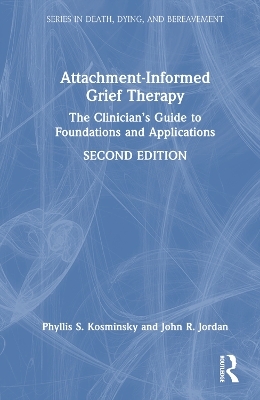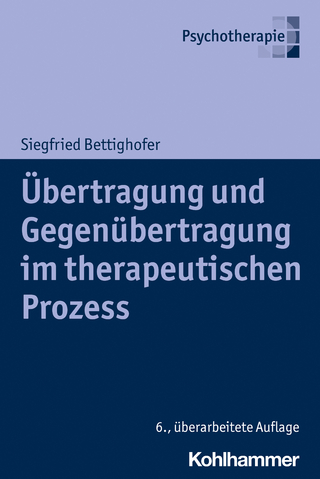
Attachment-Informed Grief Therapy
Routledge (Verlag)
978-1-032-03846-9 (ISBN)
In these pages, clinicians and students will gain a new understanding of the etiology of problematic grief and its treatment, and will become better equipped to formulate accurate and specific case conceptualization and treatment plans. The authors also illustrate the ways in which the therapeutic relationship is crucially important – though largely unrecognized – element in grief therapy and offer guidelines for an attachment-informed view of the therapeutic relationship that can serve as the foundation of all grief therapy.
Written by two highly experienced grief counselors, this volume is filled with instructive case vignettes and useful techniques that offer a universal and practical frame of reference for understanding grief therapy for clinicians of every theoretical persuasion.
Phyllis S. Kosminsky is a clinical social worker specializing in work with the bereaved, particularly those who have experienced a traumatic loss. Over the past 30 years, Dr Kosminsky has provided bereavement counseling to individuals, conducted grief support groups, and provided trainings for mental health professionals in the treatment of normal and problematic grief. Her publications include journal articles, book chapters, and the book Getting Back to Life When Grief Won't Heal. John R. Jordan is a retired psychologist in private practice in Rhode Island, where he specialized in work with survivors of suicide and other traumatic losses for almost 40 years. He was the clinical consultant for Grief Support Services of the Samaritans in Boston, Massachusetts, and the professional advisor to the Loss and Bereavement Council of the American Foundation for Suicide Prevention. He has published over 45 articles, chapters, and full books, including Grief After Suicide: Coping with Consequences and Caring for the Survivors and After Suicide Loss: Coping with Your Grief.
Introduction Part One: An Introduction to Attachment Theory and Research 1. Foundational Concepts in Attachment Theory 2. Building on the Foundation: The Second Wave of Attachment Theory and Research 3. Attachment Theory and Neuroscience: Understanding the Impact of Early Experience and the Nature of Change Part Two: Bereavement through the Lens of Attachment: Advances in Research, Theory and Practice 4. Insecure Attachment and Problematic Grief: Contemporary Models and Their Implications for Practice 5. The Impact of the Relationship with the Deceased 6. Trauma and the Mode of Death Part Three: Clinical Implications: Toward Attachment-Informed Grief Therapy 7. A Model of Attachment-Informed Grief Therapy 8. The Therapeutic Relationship: Core Capacities of the Attachment-Informed Grief Therapist 9. Strengthening Self-Capacities 10. Meaning Making in Adaptation to Loss 11. Conclusions
| Erscheinungsdatum | 16.12.2023 |
|---|---|
| Reihe/Serie | Series in Death, Dying, and Bereavement |
| Zusatzinfo | 4 Tables, black and white; 3 Line drawings, black and white; 4 Halftones, black and white; 7 Illustrations, black and white |
| Verlagsort | London |
| Sprache | englisch |
| Maße | 152 x 229 mm |
| Gewicht | 825 g |
| Themenwelt | Geisteswissenschaften ► Psychologie ► Psychoanalyse / Tiefenpsychologie |
| Medizin / Pharmazie ► Medizinische Fachgebiete ► Psychiatrie / Psychotherapie | |
| Sozialwissenschaften ► Soziologie | |
| ISBN-10 | 1-032-03846-2 / 1032038462 |
| ISBN-13 | 978-1-032-03846-9 / 9781032038469 |
| Zustand | Neuware |
| Informationen gemäß Produktsicherheitsverordnung (GPSR) | |
| Haben Sie eine Frage zum Produkt? |
aus dem Bereich


